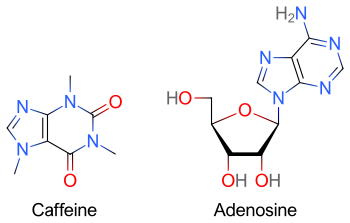Commencing explanatory preface.
Explanatory preface loaded. Launching...
So, today was the day of the first of the end-of-year exams for my first year in university. Incidentally, this first exam was also the last philosophy exam I will ever have to take, mostly because I'm a science student and my curiosity in arts has been KO'd with this one-unit (course for you Americans [and Brits? I have no idea] out there) venture, but also because I have discovered that studying philosophy sucks. I like thinking and I like telling people what I think and how I think and why I think how I think, but studying and trying to explain what dusty old men might perhaps think in difficult, entirely hypothetical terms just doesn't do it for me. Science can be hard, but at least it limits itself to this world in entirely testable terms instead of some hypothetical universe where you should be prepared for any amount of hypothetically crazy shit happening. To summarise my experience with philosophy:
Just as a side-note, I don't mean disrespect for anyone who studies or enjoys philosophy. If you're doing it, getting it and enjoying it, you're probably cleverer than me anyway, and thus deserve my resentment.
The one thing that I did like about the course that I was studying were the topics we were studying: we studied the possibility of time-travel, whether machines can think or not and such sci-fi topics. A particular favourite of mine was this possibility of machines thinking, and I'd like to share a tidbit of it with you.
You see, in 1950, a guy called Alan Turing declared (by publishing a paper) that he thought that asking "can machines think?" is too much of an ambiguous question. In his opinion, if we were ever to reach clarity on this question, we would be better off with formulating some sort of way to test the ability to think instead of just postulating about it abstractly. The ability to test for thought relies on a functionalist principle, which assumes that the ability to think doesn't rely on having a brain similar to that of a human being; further, that thinking is simply information processing. I'm not entirely sure how persuasive or true these assumptions are -- like I said, this unit didn't really set me on fire (if that even is a valid metaphor) -- but the fact that I resent the general human attitude that we're so much more special than everything else makes me inclined to agree.
 In that 1950 paper, Computing Machinery and Intelligence, Turing proposed such a test. In this test, a judge would have a written discussion with one machine and one human being without indication of which was which. Both participants would attempt to convince the judge that they are the human being. Then, after a 5-minute discussion, the judge would decide which of the participants is a human being: and if the computer manages to fool the judge over 50% of the time (in which case it is indistinguishable from the human being), it can be said to have passed the Turing test.
In that 1950 paper, Computing Machinery and Intelligence, Turing proposed such a test. In this test, a judge would have a written discussion with one machine and one human being without indication of which was which. Both participants would attempt to convince the judge that they are the human being. Then, after a 5-minute discussion, the judge would decide which of the participants is a human being: and if the computer manages to fool the judge over 50% of the time (in which case it is indistinguishable from the human being), it can be said to have passed the Turing test.It sounds mighty interesting, doesn't it? If you're like me, you'd give anything to be a fly on the wall during such a discussion. The wonderful thing is that we can.
The Loebner prize is an annual competition that, as I understand, accepts applications from anyone and everyone who wants to build a program that can behave like a human and answer any possible questions from a human in an intelligible manner. As I understand it, no computer has "passed" the Turing test as of yet, per se, but there is a cash prize involved every year for the program with the highest overall rank. I don't have the slightest understanding about programming, but if you're interested in seeing what it takes, click here.
For me, the fascination is in looking over the competition transcripts. My personal favourite is "Do-Much-More", with this fabulous quote:
Of course, I also immensely enjoy chatting to Cleverbot. If you haven't tried it yet, be sure to -- it's a whole lot of fun, even if you have to make a little bit of an effort to keep a coherent discussion going. If you've become fascinated by chatbots, go to the Loebner prize home page, as I'll list in my sources in just a moment -- you can find past transcripts and other interesting stuff there.
Judge-3: What do you do when you're not doing the Loebner prize? Do-Much-More: Oh, I do much more than I intended to do at first. I got more interested in the job as I went along. Judge-3: Is that difficult? Do-Much-More: No, it isn't at all difficult. It is as peaceful as a platypus playing with a potato pudding.
Hope you enjoy yourself in the wonderful world of AI.
Sources
http://www.worldsbestchatbot.com (quote found here)
http://www.turing.org.uk/turing/
http://en.wikipedia.org/wiki/Loebner_Prize
http://cleverbot.com/
http://www.loebner.net/Prizef/loebner-prize.html
Additional, technical endnote: This post is riddled with links. Unfortunately, (I think) due to my theme, they don't like to show up in a different font unless you actually mouse over them (this has been the case with a few of my posts. I'm afraid you've missed out on a whole lot of awesome links -- mostly to wikipedia). I am hopeless at figuring such things out, and a brief search of my options didn't help me much. If you know how to make links visible without having to change my theme, please shoot me a comment and let me know.




